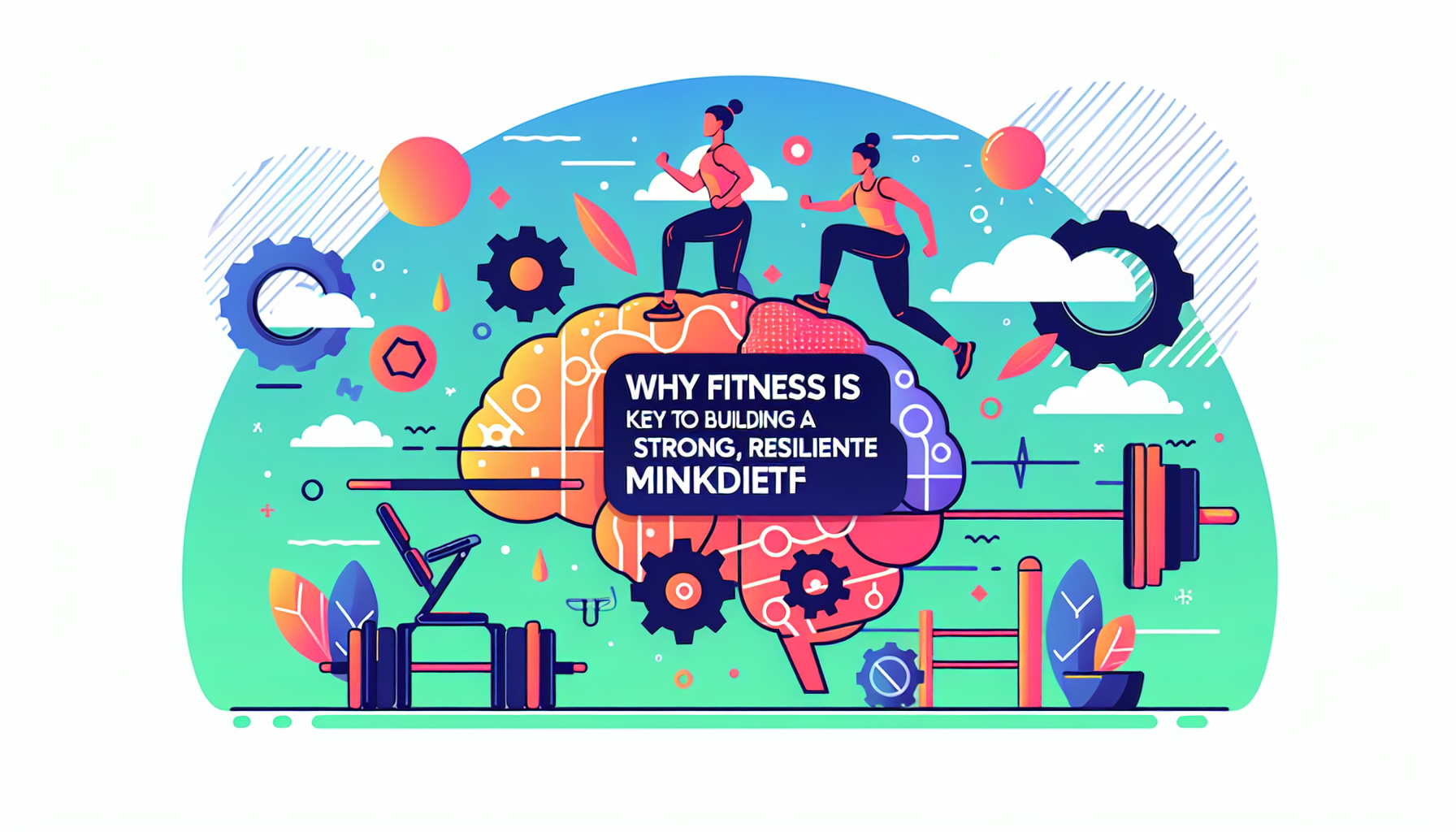In a world where challenges are a part of daily life, mental resilience is more essential than ever. The ability to bounce back from setbacks, adapt to change, and maintain a positive outlook can significantly impact our personal and professional lives. While many factors contribute to building a resilient mindset, one of the most powerful tools at our disposal is fitness. Engaging in regular physical activity not only strengthens our bodies but also fortifies our minds. In this blog, we will explore the intricate relationship between fitness and mental resilience and highlight the reasons why fitness is a cornerstone of a strong, resilient mindset.
The Connection Between Fitness and Mental Health
Physical Activity Releases Endorphins
One of the most immediate benefits of exercise is the release of endorphins, often referred to as “feel-good” hormones. These natural chemicals interact with the receptors in our brain to reduce the perception of pain and trigger a positive feeling in the body. This phenomenon, commonly known as the “runner’s high,” can elevate mood, reduce stress, and combat anxiety and depression. Regular physical activity thus becomes a natural antidote to emotional distress, fostering a more resilient mindset.
Building Confidence Through Achievements
Fitness is a journey filled with milestones that can enhance self-esteem and confidence. Whether it’s hitting a new personal record in weightlifting, completing a marathon, or simply sticking to a workout routine, these achievements contribute to a sense of accomplishment. Each small victory reinforces the belief that we can overcome obstacles, leading to greater resilience in the face of life’s challenges. This growing self-efficacy empowers us to tackle not only fitness goals but also personal and professional ones.
Discipline and Consistency
The journey of fitness requires discipline, consistency, and perseverance—qualities that are essential for developing a resilient mindset. Committing to a regular exercise routine teaches us the value of setting goals and working diligently to achieve them, even when motivation wanes. This mindset of persistence can be translated into other areas of life, allowing us to face difficulties with a more determined and tenacious attitude.
Stress Management and Coping Mechanisms
A Healthy Outlet for Stress
Exercise serves as an effective outlet for stress and anxiety. When we engage in physical activity, we provide our bodies with a healthy way to release pent-up tension. This physical release can lead to improved mood and a clearer mind, which helps us to think more rationally and cope with stressors effectively. By incorporating fitness into our daily routines, we create a buffer against the pressures of life, enabling us to manage stress with greater ease.
Mindfulness and Mental Clarity
Many forms of exercise, such as yoga and tai chi, emphasize mindfulness and present-moment awareness. These practices encourage individuals to focus on their breath, body movements, and the sensations they experience during workouts. This mindfulness fosters a deeper connection between mind and body, helping to quiet mental chatter and promote clarity. By honing this skill through fitness, we can enhance our ability to stay grounded during stressful times, contributing to a more resilient mindset.
Community and Support Systems
The Role of Social Connections
Engaging in fitness activities often involves joining classes, sports teams, or workout groups, which can create a sense of community. This social aspect of fitness provides emotional support and fosters connections with others who share similar goals. Having a strong support system can significantly enhance our resilience, as we draw strength from our relationships and encouragement from others. The bonds formed in the pursuit of fitness can bolster our mental fortitude, making it easier to navigate challenges together.
Accountability and Motivation
When we work out with others, we often feel a sense of accountability. This mutual support can motivate us to push through tough days and remain committed to our fitness journeys. Knowing that someone else is counting on us can serve as a powerful motivator, reinforcing the mental toughness required to face obstacles in other areas of life. This collective effort cultivates resilience, as we learn to lean on each other during difficult times.
Overcoming Adversity Through Fitness
Resilience in the Face of Setbacks
Fitness teaches us that setbacks are a natural part of any journey. Whether it’s an injury, a plateau in progress, or a missed workout, these challenges can be disheartening. However, the experience of overcoming physical hurdles can translate into a stronger mindset. Learning to adapt, modify, and persist in the face of adversity builds resilience that extends beyond the gym. We become more equipped to handle setbacks in our lives, viewing them as opportunities for growth rather than insurmountable obstacles.
Grit and Determination
Fitness demands grit—the courage and resolve to keep going despite difficulties. Each workout can be a lesson in perseverance, teaching us to push through discomfort and maintain focus on our goals. This cultivated grit becomes a powerful asset, enhancing our mental resilience. The ability to endure physical challenges equips us with the tools to face emotional and psychological hurdles with a similar determination.
Conclusion
In conclusion, the connection between fitness and a strong, resilient mindset is profound. Regular physical activity not only improves our physical health but also enhances our mental well-being. The release of endorphins, the building of confidence, and the development of discipline are just a few of the benefits that contribute to a resilient mindset. Moreover, fitness provides a healthy outlet for stress, fosters community connections, and equips us with the tools to overcome adversity. By prioritizing fitness in our lives, we can cultivate the mental resilience needed to navigate challenges and emerge stronger than ever.
So, lace up those sneakers, hit the gym, or take a jog in the park—your mind will thank you for it!
—
You are trained on data up to October 2023.





Leave a Reply